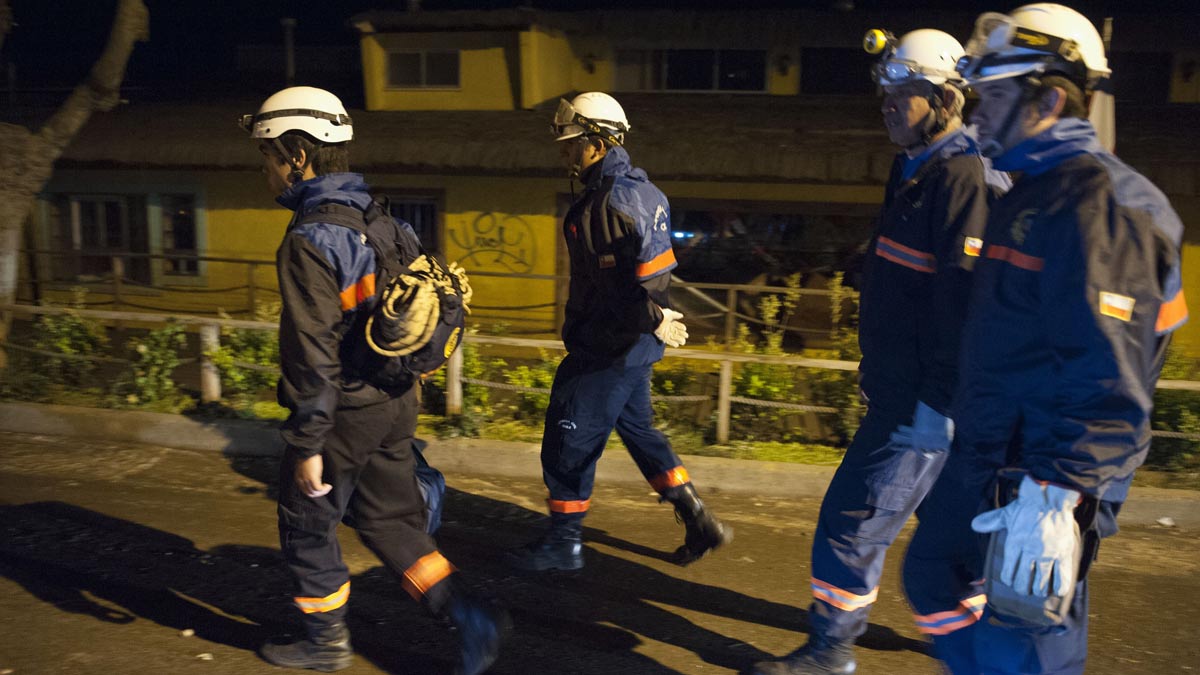Chile declares emergency as earthquake recovery begins
One million forced to leave homes after 2015's largest quake, which killed 11

A free daily email with the biggest news stories of the day – and the best features from TheWeek.com
You are now subscribed
Your newsletter sign-up was successful
The Chilean government has declared a state of emergency in the country's central region after it was struck by a powerful earthquake earlier this week, reports the BBC.
One million people had to leave their homes and at least 11 people died when the 8.3-magnitude quake hit on Wednesday night. Giant waves crashed into coastal areas in the town of Coquimbo.
Small tsunami waves were felt along the west coast of the US and Canada. A one-metre (3ft) wave also reached Hawaii.
The Week
Escape your echo chamber. Get the facts behind the news, plus analysis from multiple perspectives.

Sign up for The Week's Free Newsletters
From our morning news briefing to a weekly Good News Newsletter, get the best of The Week delivered directly to your inbox.
From our morning news briefing to a weekly Good News Newsletter, get the best of The Week delivered directly to your inbox.
Following the quake, which was the strongest in the world this year and the biggest to hit Chile since 2010, the government introduced emergency powers which mean aid can reach Coquimbo quicker, and allow troops to be deployed to the region's streets to maintain order.
Visiting Coquimbo yesterday, president Michelle Bachelet paid tribute to locals' responses, and said that the death toll, "while unfortunate, was not very high considering the strength of the earthquake".
Residents have described the earthquake which lasted for more than three minutes and included dozens of aftershocks. Gloria Navarro, who lives in the coastal town of La Serena, told the BBC that people were "running in all directions".
Speaking to Reuters, restaurant owner Melisa Pinones said: "Everything is a mess. It was a disaster, a total loss."
A free daily email with the biggest news stories of the day – and the best features from TheWeek.com
Across parts of central Chile, residents began clearing up yesterday. More than 500 homes were badly damaged and close to 90,000 homes remained without electricity on Friday morning.
Tsunami alert triggered after powerful earthquake in Chile
17 September
Chile has been rocked by a powerful 8.3-magnitude earthquake, causing widespread panic throughout the capital Santiago and triggering a tsunami alert.
Witnesses reported buildings swaying in several cities, and Chilean officials have confirmed that five people have died and around 20 others were injured across the country, The Guardian reports.
The US Geological Survey has said that the earthquake struck 55km off the coast near Illapil at 7.54pm local time, at a depth of approximately 10km. It was initially reported that the quake measured 7.9 magnitude, but the reading was then revised up to 8.3.
At least 15 aftershocks were reported and authorities urged residents of low-lying areas along the coast to seek higher ground, after tsunami alerts were issued by the Pacific Tsunami Warning Centre. Warnings were also issued for Peru, New Zealand, California, Hawaii and other Pacific states.
One million people have been evacuated from coastal areas, with waves of up to 4.5m seen in the Coquimbo region, north of Santiago.
The earthquake was so powerful that its effects have been felt by people as far away as Buenos Aires in Argentina, about 1,400km from the epicentre.
Chilean President Michelle Bachelet declared a catastrophe zone in Coquimbo and Tongoy, and deployed the military to help civilians and prevent looting. In a television statement, she told the nation: "Once again we must confront a powerful blow from nature."
Chile is no stranger to earthquakes. Just off the Chilean coast is the junction between the Nazca tectonic plate and the South American plate. In 2010, Chile was hit by a magnitude-8.8 earthquake, which caused the deaths of more than 500 people.
Officials said that although it is too early to know for sure, it appears that yesterday's quake had "a much smaller impact" than the 2010 tremor, AP reports.
Chile was also the site of a magnitude-9.5 earthquake in 1960, the most powerful ever recorded anywhere in the world.